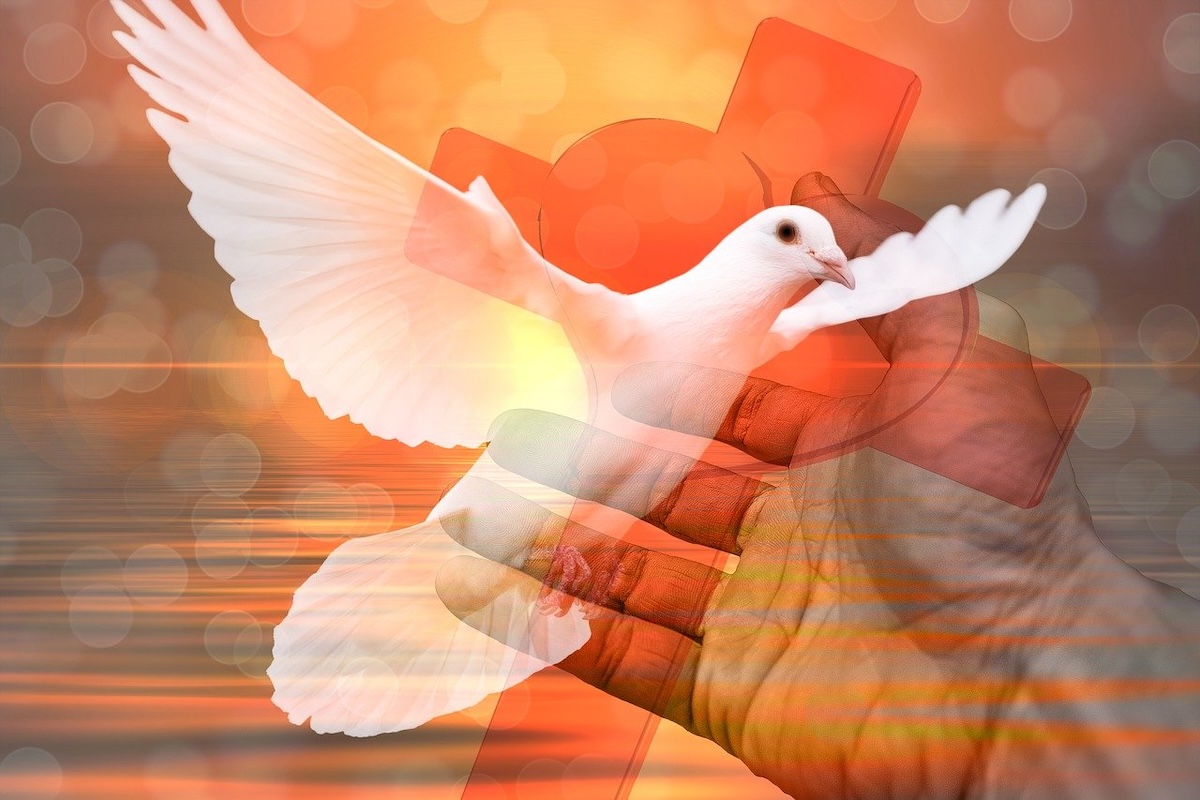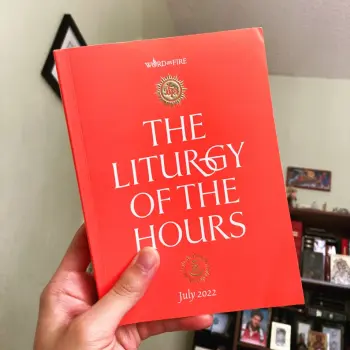Suffering and peace go together, though not always right away. I remember when I was younger and my Mom got sick. When my brothers and I got up in the morning, our neighbor was in our kitchen. This time seemed to be different. I remember asking, why is she here and where are Mom and Dad? She eventually went back home and I helped take care of the house and my three siblings.; I was the oldest and did a fair job taking care of my two brothers and little sister. I didn’t know it yet, but I was about to learn the link between suffering and peace.
It took a while before we found out that my mom was going to be out of commission for quite some time. It led to some changes in our day-to-day life. My dad started cooking more, if Hamburger Helper can be considered cooking. My brothers and I had to be responsible. Mom had to get better. Things were complicated by the fact that she was pregnant with my next brother, number 5 in the Sheehy clan.
When Mom Is Sick
When Mom is sick, everything changes. What must it have been like for the woman from the Gospel who suffered from hemorrhages? She had been sick for twelve long years and felt discouraged because all of her visits to the doctor had been in vain. Mom was suffering physically but also devastated emotionally. She was ostracized from society because of her illness. Some even interpreted her physical illness as a sign of moral wrongdoing.

Physical Ailments and Spiritual Suffering
Of course, this view of illness as an indicator of immorality is misguided. God is not waiting to punish us with physical ailments because of our moral missteps. When you suffer bad fortune, your first thought should not be “what did I do wrong?” or “why is God punishing me?”
To understand this doctrine and practice of the Church, it is necessary to understand that sin has a double consequence. Grave sin deprives us of communion with God and therefore makes us incapable of eternal life, the privation of which is called the “eternal punishment” of sin. On the other hand every sin, even venial, entails an unhealthy attachment to creatures, which must be purified either here on earth, or after death in the state called Purgatory. This purification frees one from what is called the “temporal punishment” of sin. These two punishments must not be conceived of as a kind of vengeance inflicted by God from without, but as following from the very nature of sin. A conversion which proceeds from a fervent charity can attain the complete purification of the sinner in such a way that no punishment would remain. (Catechism of the Catholic Church, 1472).
Sinful, Broken World
We live in a sinful, broken world. While there is immorality and there are imperfections in our bodily nature, we do not have to assume they are always tied intrinsically together. When we do suffer, we are given a beautiful opportunity to reflect on the brokenness of this life and the fact that we are made for the perfect happiness of heaven.
The woman with the hemorrhages felt her own suffering tremendously. Jesus took this suffering as an opportunity to show his own power over sin and death, as well as the misery that accompanies our fallen world.
If God does not punish us for our sins, why is it so common for some people to fear the punishment of God? First of all, at an intellectual level, many people are not clear on the actual teaching of the Church. Secondly, I think we fear the punishment of God because of our own guilty conscience, and we project our feelings about ourselves on to God. Our own troubled conscience can accuse us of our sins and failings, along with the subtle voice of Satan, the accuser of mankind. If we are absorbed in self, we may become trapped in our own guilty conscience, imprisoned in self-condemnation (Fr. Tim McCauley, “Does God Punish Us For Our Sins?”).
Deep Belief
For her to reach out her hand to touch Jesus, this woman had to believe profoundly. Our difficulty is that too often we prefer to hold on to our sin instead of reaching out to Jesus in the faith that he can and wants to heal us. To reach out is to have a humble attitude and to recognize our need for Jesus. So much of this life is made up of opportunities to become aware of how much we need Jesus even though our constant temptation is to think that we are self-sufficient.
When we experience suffering from physical pain or from sin, whether ours or someone else’s, we have a profound opportunity to rely totally on Jesus. When we achieve this, we achieve peace. St. Augustine defines peace as tranquility of order. If we want to achieve peace, we must restore order to whatever situation seems to be robbing us of peace.
Subscribe to the newsletter to never miss an article.

















